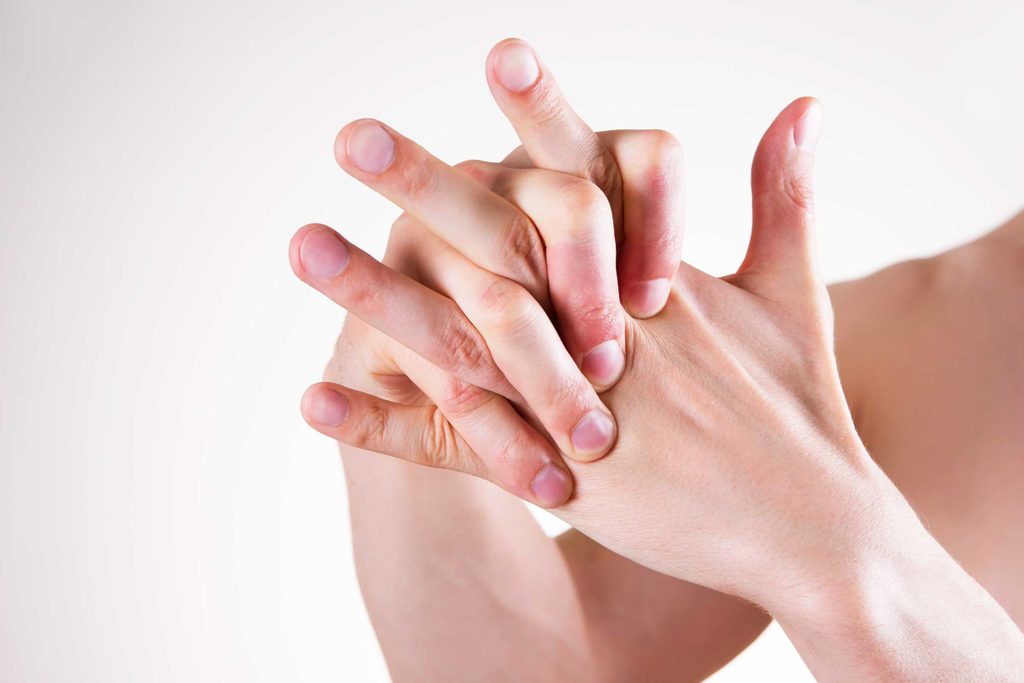Does Cracking Your Knuckles Cause Arthritis?
Updated: Sep. 18, 2017
Sure, this common habit is annoying to others, but is it actually harmful? We got doctors to set the record straight.

Whether you crack your knuckles to relieve stress or just out of habit, you’ve likely heard people warn that it can cause arthritis or worse. Spoiler alert: It doesn’t cause arthritis, according to Alex Foxman, MD, of the Beverly Hills Institute and an internist specializing in Internal, Aesthetic, and Preventive Medicine in Los Angeles. So, while knuckle-cracking may not be one of the top 10 bad health habits you need to quit, that doesn’t mean the habit is harmless.
“Though cracking your knuckles won’t cause arthritis, several studies show that chronic knuckle crackers may have decreased hand grip strength and swollen hands,” Dr. Foxman says. “If cracking your knuckles is accompanied by pain, this can be due to an underlying injury.” Though the data is sparse, there are some reports of skin changes and ligament swelling from chronic knuckle cracking, according to Pamela Arsove, MD, with CityMD, a network of urgent care centers in the New York City metro area.
If cracking knuckles offers some relief from stiff fingers or tired hands—the “crack” you hear is actually caused by gas bubbles bursting in the lubricating fluid around the joints, called synovial fluid, according to Dr. Foxman—that may be A-okay. “There are no negative health effects of cracking your knuckles, period,” says orthopedic surgeon John Kelly, MD, who specializes in minimally invasive procedures Orange County, California.
Some research even suggests that cracking knuckles may bring benefits. A knuckle-cracking study by Robert Szabo, MD, a hand surgeon at the UC Davis Medical Center and former president of the American Society for Surgery of the Hand, and Robert Boutin, MD, a radiologist at UC Davis, examined people’s knuckles pre- and post-crack, along with the knuckles of a group of non-crackers, to look for problems, including hand swelling and waning grip strength. The knuckle-crackers didn’t have any hand problems, according to an article on an article on CNN. “In fact, after someone cracked a knuckle, it had an increased range of motion compared with knuckles they hadn’t cracked,” the article reports.
So what really can increase your chances of getting arthritis? According to Johns Hopkins Arthritis Center, key causes include genetic predisposition, aging, and excessive mechanical stress. But arthritis is not inevitable. Here’s how doctors reduce their risk of developing arthritis.















